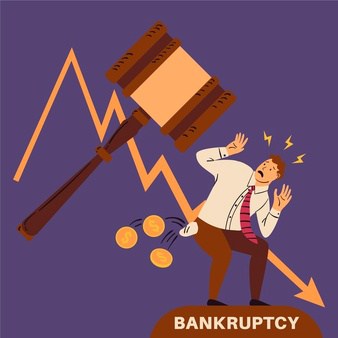A bankruptcy filing is a safe means of obtaining debt relief or bankruptcy discharge. It offers you an opportunity to have a fresh start in terms of your finances. To decide whether filing for bankruptcy is the right option for you, here is a guide on how the bankruptcy process works.
The different bankruptcy forms allow an individual to rebuild his or her financial future while making sure the legal rights of all involved are taken into account.
Bankruptcy protection is one of the many benefits that come with filing bankruptcy. Filing a petition in bankruptcy prohibits discrimination of individuals with owed debts that they can no longer repay due to unavoidable circumstances. It also protects the debtor from creditor harassment, foreclosure, and wage garnishment.
Similarly, there are bankruptcy rules that must be followed to protect creditors from fraudulent debts. Bankruptcy law is a complex matter. You should hire an experienced bankruptcy attorney that will help you before and even after you go through the bankruptcy procedure.
The greatest advantage you can get when you file for bankruptcy is being able to wipe out your unsecured debt. Keep in mind that there are different types of debts. Unsecured debts can be discharged when you file a bankruptcy petition. It includes credit card bills and medical bills. However, secured debts cannot be eliminated even when you file for bankruptcy. On top of secured debts, child support, alimony, certain tax debt, and student loan debt are generally non-dischargeable.
 Filing a bankruptcy petition also enables you to benefit from an automatic stay. The bankruptcy stay prohibits further collection actions by your debt collectors. This will allow you to catch up with payments for secured debts (mortgage payments for car loans, for example) and to stop wage garnishment or seizure of your bank account.
Filing a bankruptcy petition also enables you to benefit from an automatic stay. The bankruptcy stay prohibits further collection actions by your debt collectors. This will allow you to catch up with payments for secured debts (mortgage payments for car loans, for example) and to stop wage garnishment or seizure of your bank account.
There are different bankruptcy options that you may choose from when working on your would-be bankruptcy case. For example, if you have to pay off secured debts, you may either continue making regular payments and retain your assets or simply discharge your debts but be asked to surrender your properties.
What is the difference between Chapter 7 and Chapter 13?
In consumer bankruptcy, Chapter 7 (liquidation bankruptcy) and Chapter 13 (reorganization bankruptcy) are the most commonly used.
When filing Chapter 7, you may be able to wipe out dischargeable debts without additional payments. You may also secure the personal property you may want to keep, provided that they are considered exempt.
Bankruptcy chapter 13, in contrast, is a plan to reorganize debts. As you restructure your finances, you propose a repayment plan that usually runs from three to five years. Qualifying for this chapter will depend on your monthly income, living expenses, and the ability to pay back what is owed. Through a bankruptcy filing under Chapter 13, you might be asked to pay none, some, or all of your unsecured debts, depending on your bankruptcy case.
What is a Means Test?
The use of the bankruptcy means test was implemented to decrease bankruptcy fraud. A filer’s income and expenditures over the past six months are included in the test. In Chapter 7, you are deemed to be qualified if your income is below the median income of your state. If it is greater, then a more detailed examination must be done, one that will compare your revenue with your expenses. Even with a great amount of salary, you could be eligible for Chapter 7 because of your financial status. If not, then Chapter 13 would be the best option for you.
Bankruptcy Exemptions
You are entitled to deductions for certain forms of the property when filing Chapter 7. There is a state law that specifies what particular property is eligible and what dollar restrictions are on what form of property.
Generally, because of these exemptions, the majority of filers under Chapter 7 risk nothing. In certain cases, however, if the individual owns a lot of non-exempt assets, he or she chooses to file bankruptcy Chapter 13 in order to avoid losing any properties.
Consulting Bankruptcy Attorneys
Bankruptcy lawyers are knowledgeable in pertinent bankruptcy rules and proceedings. This is why you need to consult first with a hands-on bankruptcy lawyer before declaring bankruptcy. This will help you avoid any legal issues during the actual bankruptcy proceeding. A professional and competent bankruptcy attorney will ensure that every piece of paperwork is filed correctly and on time.
Credit Score
A lot of people mistakenly think that after bankruptcy, they will not be able to obtain credit. Bankruptcies remain on your credit report for up to ten years. However, creditors are also aware that you may only file Chapter 7 once every eight years. This implies that you are not as poor a credit risk as an individual who is facing financial problems. After a bankruptcy discharge, you would then receive credit offers with high-interest rates within weeks and months. Gaining new credit and responsibly using it may help you rebuild your credit score.
Debt problems may be extremely stressful. It is necessary to seek legal help and assistance. Contact us at Daniela Romero Law for a free consultation. Call 626-296-6971 for more information.
